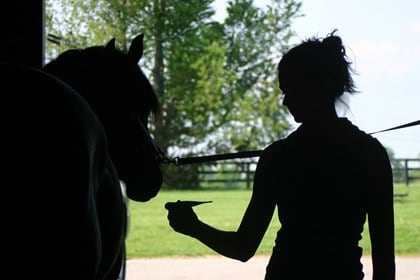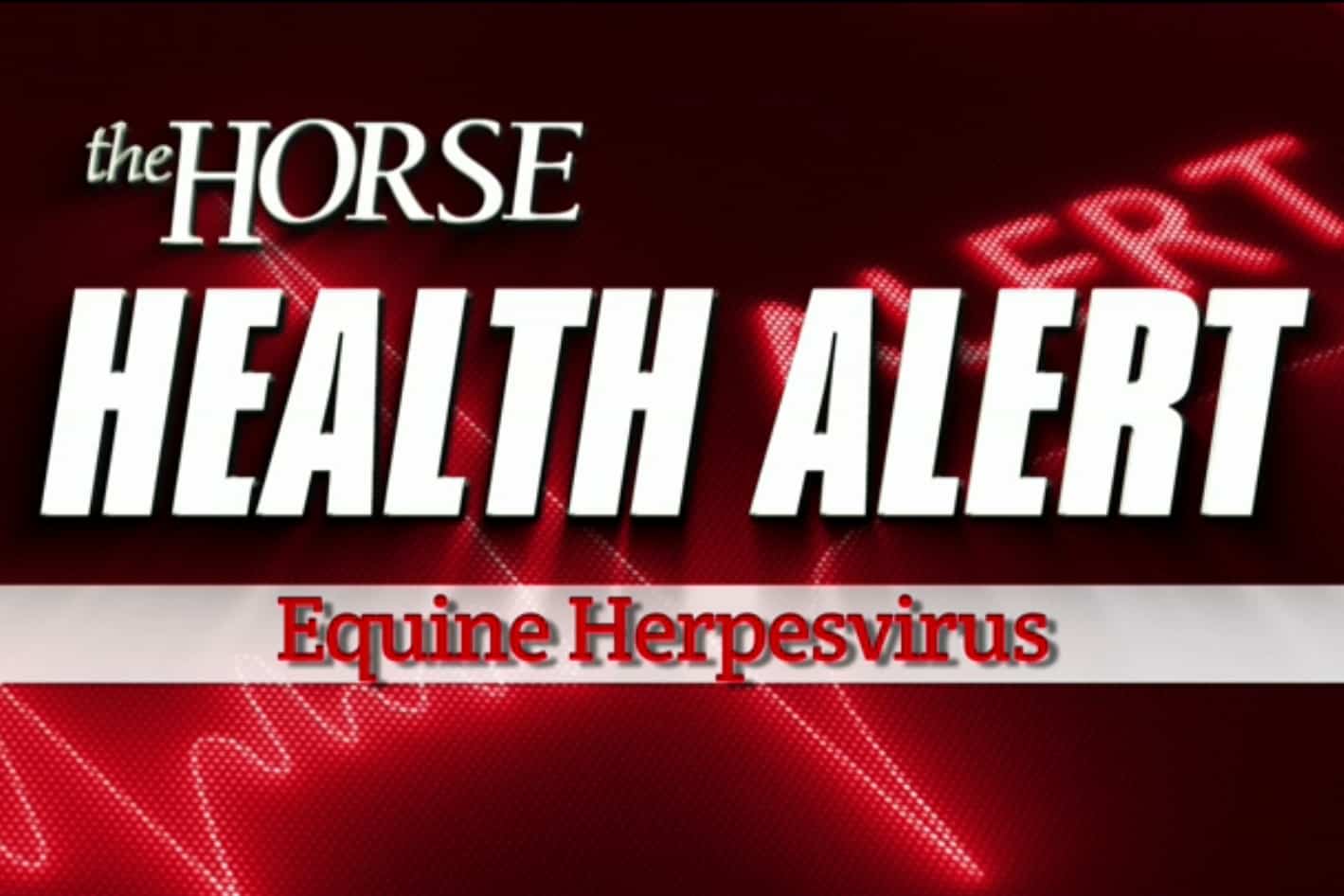Florida Agencies Issue EHV Outbreak Updates

On March 8, TheHorse.com reported on a neurologic equine herpesvirus-1 (EHV-1) case confirmed in Marion County, Florida, on March 2, as well as a second horse that tested positive on March 4 but showed no neurologic signs. Since then, both the World Equestrian Center (WEC) and the Florida Department of Agriculture and Consumer Services (FDACS) have issued statements updating the public.
On March 10, FDACS officials released a statement indicating that no new cases of EHV-1 had been reported in Florida.
According to a March 10 World Equestrian Center (WEC) statement, veterinarians and WEC management lifted the quarantine on the 16 horses housed in Barn D, where the index case was stalled until it was removed to the University of Florida for isolation on March 3. Showing is now continuing as scheduled.
“As of today, no horses have tested positive for EHV-1 on World Equestrian Center, Ocala, property,” the WEC statement said. “Moving forward, horses that have traveled to another Florida competition venue and horses who have been exposed to horses that have been at other Florida competition venues in the last 10 days will not be allowed on World Equestrian Center, Ocala, show grounds.”
WEC is requiring health certificates or a statements of health issued by a licensed veterinarian within seven days prior to arrival for all horses entering the property. Daily haul-ins and horses showing off trailers for the day are currently restricted, the statement said.
Competition attendees with further questions are asked to contact TJ Campbell, WEC horse show manager, at tj.campbell@wec.net; Vinnie Card, WEC director of operations, at vinnie.card@wec.net; or Larry Wexler DVM at lwexlerdvm@gmail.com.
EHV 101
Herpesvirus is highly contagious among horses and can cause a variety of ailments in equids, including rhinopneumonitis (a respiratory disease usually found in young horses), abortion in broodmares, and equine herpesvirus myeloencephalitis (EHM, the neurologic form).

In many horses, the first or only sign of EHV-1 infection is fever, which can go undetected. In addition to fever, other common signs of EHV-1 infection in young horses include cough, decreased appetite, depression, and a nasal discharge. Pregnant mares typically show no signs of infection before they abort, and abortions usually occur late in gestation (around eight months) but can be earlier. Abortions can occur anywhere from two weeks to several months following infection with EHV-1.
Horses with EHM usually have a fever at the onset of the disease and might show signs of a respiratory infection. A few days later, neurologic signs such as ataxia (incoordination), weakness or paralysis of the fore- and hind limbs, urine retention and dribbling, loss of tail tone, and recumbency (inability to rise) develop.
Herpesvirus is easily spread by nose-to-nose or close contact with an infectious horse; sharing contaminated equipment including bits, buckets, and towels; or clothing, hands, or equipment of people who have recently had contact with an infectious horse. Routine biosecurity measures, including hygiene and basic cleaning and disinfection practices, should be in place at all times to help prevent disease spread.
Current EHV-1 vaccines might reduce viral shedding but are not protective against the neurologic form of the disease. Implementing routine biosecurity practices is the best way to minimize viral spread, and the best method of disease control is disease prevention.
Written by:
Diane E. Rice
Related Articles
Stay on top of the most recent Horse Health news with












